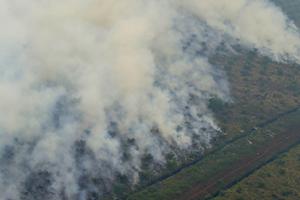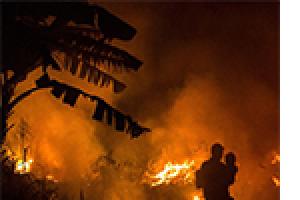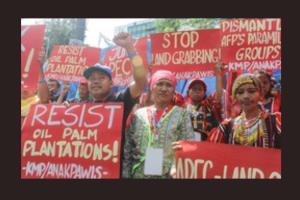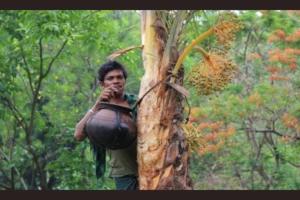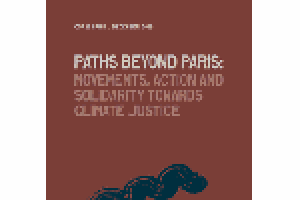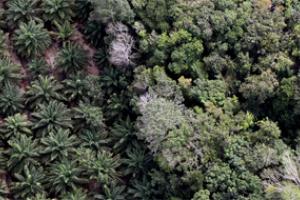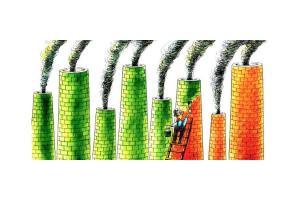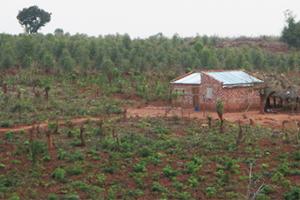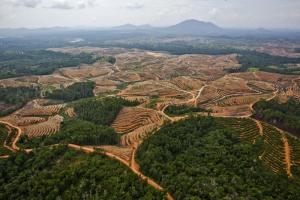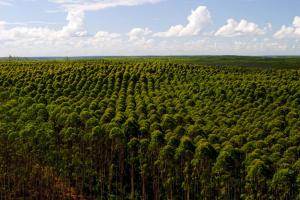The Scale of Disaster
Large-Scale Tree Plantations
Industrial tree plantations are large-scale, intensively managed, even-aged monocultures, involving vast areas of fertile land under the control of plantation companies. Management of plantations involves the use of huge amounts of water as well as agrochemicals—which harm humans, and plants and animals in the plantations and surrounding areas.
Bulletin articles
11 December 2015
Other information
11 December 2015
An article from “The Guardian” highlights how despite fire raging across over 5,000 km in Indonesia, the media “dominated by corporate press releases, photo ops and fashion shoots” is not paying attention. This catastrophe is having severe effects on many levels. Children are being prepared for evacuation on warships. Populations of species, including threatened species, are going up in smoke at an untold rate.
Other information
11 December 2015
In early November, a gathering of peasants and indigenous peoples from Mindanao, Bohol and Palawan, denounced the government’s plan to devote eight million hectares of land to oil palm by 2023. Oil palm plantations in the Philippines cover almost 55,000 hectares. The Philippine Coconut Authority’s (PCA) 2014 to 2023 road map has identified about a million hectares for potential oil palm farms.
Other information
11 December 2015
The Indian government is producing many proposals to make more profit from the country’s forests. These include wider application of their huge Compensatory Afforestation Fund and private leasing plans.
Bulletin articles
11 December 2015
Other information
2 December 2015
By Carbon Trade Watch.
Bulletin articles
9 November 2015
**This article is based on a conversation between Winnie Overbeek, the international coordinator of the World Rainforest Movement, and GRAIN on September 2014, which was published by GRAIN at “Planet palm oil”. The information has been updated for this article.
Bulletin articles
9 November 2015
Certification has been described as the brightest of bright shining lies of the sustainability movement. And in recent years, certification roundtables have teamed up with another bright shining lie: REDD+
Bulletin articles
9 November 2015
"Nobody eats eucalyptus." With this statement farmers expressed their outrage when the company Aracruz Celulose expanded its monoculture eucalyptus plantations several years ago on arable land in Espirito Santo, Brazil. While the objective was to produce and export more pulp, Aracruz and other companies publicly promote their practices as "smart.” They claimed they only plant trees on "degraded" or "abandoned" land, for example. And now with the climate crisis, the FAO suggests adopting "climate-smart forestry" practices. The question that arises: Can we really consider current company
Bulletin articles
15 October 2015
Other information
15 October 2015
On September 21, about 300 indigenous peoples occupied the Nedila property in the municipality of Prado Bahia, Brazil, where the Suzano Company has a eucalyptus monoculture plantation. The main demand of the indigenous peoples is the immediate closure of the plantation, which is already causing great environmental destruction. The plantation is still not fully developed, but it is already showing its harmful effects on humans as well as on fauna and flora.
